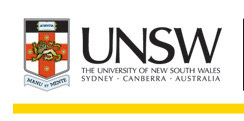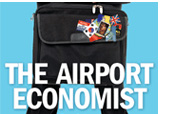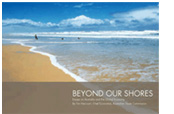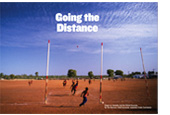The Labor leadership tussle is focussing the minds of local political pundits but at the end of the day, whoever leads the Australian Labor Party (ALP) and the current Government will have to woo the Australian electorate at large come Election Day due in 2013 or maybe even this year. Over coming months you will hear a lot about opinion polls, focus groups, voter demographics from professional pollsters and the like. But in amidst of this analysis by paralysis (although as an election junkie I love all this stuff) it occurred to me that there is a relatively simple way of looking at the task before the Labor Prime Minister and the Coalition Opposition leader to win over the Australian people.
As a self confessed ‘airport economist’ I travel a lot and see lots of economies and election systems at play. I think I must have been to 56 countries over the last 5 years and have seen the unique political economy of many lands as far apart economically, geographically and politically as Mexico and Mongolia, Malta and Mozambique. But is occurs to me, that I can understand the electorate in my own country, without even departing my home airport of Sydney.
Just think of the traffic of passengers that goes through the three terminals of Sydney Airport.
In Terminal 1, the international terminal, you have a mix of regular business travellers from corporate Australia. They are a mix of high income mainly Liberal voters but with some professional class Labor voters and Greens as well. However, there are also young voters (back packers and students who are traditionally Labor and now increasingly green) and increasingly Australians from all over the income spectrum that can now travel overseas for holidays thanks to a high Australian dollar and increasing Airline competition – particularly in Asia. The high dollar is causing a once in a generation structural change in the Australian economy, where Australia businesses export to Asia, Australian consumers buy retail online from the USA, and Australian tourists take their holidays in Tuscany or Thailand rather than Tully or Tweed Heads.
But at Terminal 1, there’s another major segment of the Australian electorate that always matters – immigrants. Not only do immigrants go to this terminal to fly back to see their relatives (or come to the airport to welcome new family members, like Italian and Greek migrants used to in the 1950s and 1960s at the docks), but take a look around at the airport. Who does all the work there? Who cleans the airport, serves in the shops, or handles your baggage, drives your taxi or airport bus or checks you into your hotel? Immigrants. And many are newly arrived. It’s not a surprise. ABS data shows that, one in four Aussies were born overseas, Sensis data shows that one in two of our exporters are born overseas. On average, immigrants do the work, create the jobs, make excellent employers and exporters and their kids and grandkids will probably go to Uni and be highly skilled workers. Low and middle income, immigrants also have traditionally voted Labor, but any comments about “not believing in big Australia” should be carefully interpreted as they are one group who has remained loyal to the ALP (and the ACTU) despite recent debates.
Next is Terminal 2, the terminal for Virgin and Jetstar and the terminal that services regional Australia. A lot of National party voters use this terminal (to go to Taree and Coffs Harbour, Dubbo and Wagga Wagga) but again some holiday makers use it for cheap flights to Byron Bay Ballina or the Gold Coast. With the rise in income self employed voters (blue collar tradies, contractors and other small business operators) a new constituency is up for grabs. Many of these voters (as employees and union members) would have definitely voted for Bob Hawke and for Paul Keating, but Tony Abbott and John Howard before him have had some success in wooing them. Many of them would have voted for Kevin Rudd in 2007 as the Howard Government’s work choices legislation was just too radical and employer-centric for a moderate, practical Australian electorate. For an incumbent Labor Prime Minister winning Terminal 2 back is crucial for the 2013 campaign.
Finally, Terminal 3, this is Qantas domestic, which attracts mainly Corporate Australia. Electorally it would be similar to the Qantas Club in the International Terminal – professional, middle to high income, busy and split between Coalition, Labor and Green but tending to Coalition (but of a Malcolm Turnbull style, small ‘L’ liberal variety).
So there’s my advice to a Labor Prime Minister for the next election: consolidate Terminal 3, maintain a winning margin in Terminal 1, but make up lost ground in Terminal 2, where the Coalition are campaigning very effectively with Tony Abbott’s cut through style.
Tim Harcourt is the JW Nevile Fellow in Economics, Australian School of Business, UNSW and author of The Airport Economist.













No Comments so far ↓
Comments are closed.